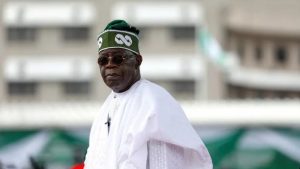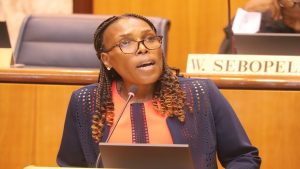The supplementary budget has painted a bleak picture of the South African economy as the country battles the coronavirus pandemic.
It shows a deterioration in government finances with marked increases in debt, weak revenue collection and more spending pressures.
Finance Minister Tito Mboweni has warned that South Africa’s public finances need urgent action to avoid a situation where the country is unable to pay its debt.
Presenting his supplementary budget in parliament, Mboweni says drastic action must be taken in the 2020 budget process to contain ballooning debt and debt-service costs, and narrow the budget deficit.
He has proposed that the medium-term budget statement will be directed by a zero-budget process where all expenses must be justified for each new period.
The medium-term expenditure framework process will be guided by the principle of zero budget from July onwards. This means that budgeting will be based on clearly set out policy priorities and therefore amounts will be accordingly allocated.
South Africa’s economy is projected to contract by 7.2% this year. Mboweni says debt-to-GDP is expected to jump to 81.8%.
More bad news is that the country’s budget shortfall could widen by R761.7 billion or 15.7% of GDP in 2020 as tax revenue continues to decline.
Mboweni says these developments have forced the country to look at new sources of funding.
Treasury proposes an additional R25,5 billion for Social Development:
“Without external support, these borrowings will almost entirely consume all of our annual domestic saving, leaving no scope for investment or borrowing by anyone else. For this reason, we need to access new sources of funding. The government intends to borrow about $7 billion from international finance institutions to support the pandemic response. We must make no mistake. These are still borrowings. They are not a source of revenue. They must be paid in the future.”
Mboweni has also announced new measures to boost job creation and support infrastructure spending. He announced a R100 billion to job creation initiatives. He says the government has already committed another R100 billion over ten years towards the Infrastructure Fund.
The Economic Support Package sets aside R100 billion for a multi-year, comprehensive response to our jobs emergency. The President’s job creation and protection initiative will be rolled out over the medium-term.
It will include a repurposed public employment programme and a Presidential Youth Employment Intervention. In this year, an amount of R6.1bn is already allocated, and a further R19.6 billion has been set aside mainly for this purpose.
Mboweni has allocated R100 billion to finance job creation initiatives over the next few years.
Mboweni has announced over R30 billion to support increased screening and testing for the novel coronavirus.
Mboweni says the spending is necessary as the economy opens up. He says provinces will add at least R5 billion more for the education catch-up plan, and social welfare support for communities.
Economist and Founding Director of the Centre for Economic Development and Transformation, Duma Gqubule on the impact of the supplementary budget:






